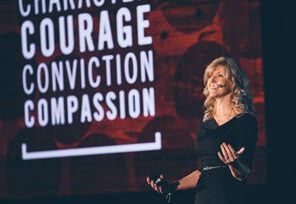Top 7 Unmissable Highlights at #GlobalBPC2019
1. 3PD (Third Party Delivery)
Third Party Delivery is making waves in the restaurant industry and Black Box Intelligence (formerly TDn2K) is your guide to staying on top of this trend. Our research answers questions about costs, staffing implications, and key concerns of selling indirectly to guests. Catch this session on the Main Stage and at FinSights.
2. Get Inspired with Great Keynotes
Do you have a pen & paper handy? From igniting your life through choice with John O’Leary or learning to outpace the marketplace through teamwork and leadership with Simon Mainwaring, we promise you won’t leave without valuable, actionable information.
3. You Get to Drink Texas Ranch Water!
Okay, not really. But you get to hang out with industry veterans and restaurant leaders while sipping on the latest Coke signature cocktails – Texas Ranch Water & Velvet Jack and Coke – sponsored by Coca-Cola.
4. Morning with Joe
Our favorite dynamic duo is back! Join Joe Kefauver from Align Public Strategies & Sarah Lockyer, group publisher for Nation’s Restaurant News, as they discuss industry policy, election implications, and how to win the workforce (with coffee in hand).
5. HR Executive & FinSights Summits
Whether you are an HR leader or a high-level finance executive, our pre-conference sessions will cover everything from incredibly difficult labor markets to connecting the dots between financial, human capital, and guest satisfaction data.
6. Networking Galore
If you haven’t realized it by now, this isn’t your typical industry event. We want you to walk away with new ideas, connections, friends, and of course best practices. With plenty of receptions and our Shoes & Booze community service project, you will have ample time to network with the best attendees in the business.
7. Changers of Commerce
It’s not #GlobalBPC without recognizing companies who are going above and beyond the call of duty. This year, we have a great panel of entrepreneurs from local and national brands prepared to tell you their stories. All are welcome & expect to be inspired
